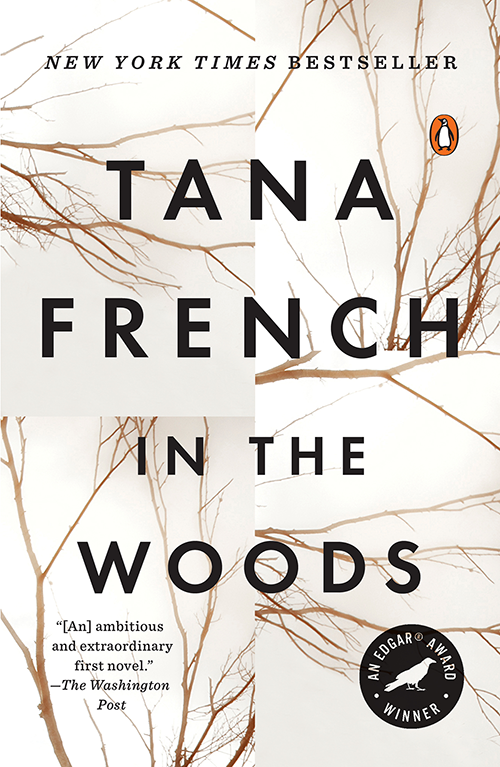Discovering the crime novelist Tana French was, for me, an experience of immense delight. After coming across a review of her 2016 novel, THE TRESPASSER, in one of those year-end roundups, I sprang for the hardcover. But as I came up for air between French’s propulsive plot and enviable prose, I thought, Good lord, this woman has been writing for an entire decade, and I could have been reading her this entire time? Of course, this was followed by the realization that after I finished I would have five of her earlier novels—all set within the world of the Dublin Murder Squad—on which to promptly glut myself.
I eagerly moved on to French’s debut, IN THE WOODS, which I have since revisited on audiobook (with a superb narration by Steven Crossley). Given that her most recent novel displays painfully mature insights into midlife regret, self-reinvention, and the cruel finality of decisions made blithely in one’s youth, I was prepared for that feeling of devolution a reader sometimes gets when working backward through an author’s work. But IN THE WOODS proved to have just as much complexity and psychological meat on its bones.
Told in first person by Detective Rob Ryan, the narrative unfolds as a kind of ghost story in which Ryan—after a murdered girl turns up in the Dublin suburb of his youth—is compelled to revisit the childhood disappearance of his two best friends. The conceit itself is not unfamiliar: a detective’s latest case forces him back to his hometown to confront dangerous truths about his past. Can he keep it together or will the reader watch him unravel in spectacular fashion?
If the setup sounds textbook, French’s sleight of hand makes an otherwise hardboiled procedural appear as artful as fiction comes, with characters so exquisitely flawed and prose so expertly constructed that one wants to linger in their formation despite the sharp tug of the plot. It helps, of course, that French has given us a hyper-literate hero, whom we believe fully deserving of the words she lends him: “I went for old books, the older the better—Tolstoy, Poe, Jacobean tragedies, a dusty translation of Laclos—so that when I finally resurfaced, blinking and dazzled, it took me days to stop thinking in their cool, polished, crystalline rhythms.”
I was struck by how French layered past over present to create a clever doubling of everything Detective Ryan has lost long ago, even if he cannot appreciate this himself. The configuration and dynamics of his childhood friend group re-emerges; bratty playground dialogue replicates itself among the adults of the squad room; and the emotional damage of Ryan’s formative years ricochets toward the present to devastating effect.
In the balance between the lyrical and psychologically deft, it’s easy to forget that IN THE WOODS qualifies as genre crime. But then finding that rare author who consistently combines serious literary muscle with the plot-driven pleasures of genre fiction—six novels and counting for French—is one of the most gratifying discoveries a reader can make.









